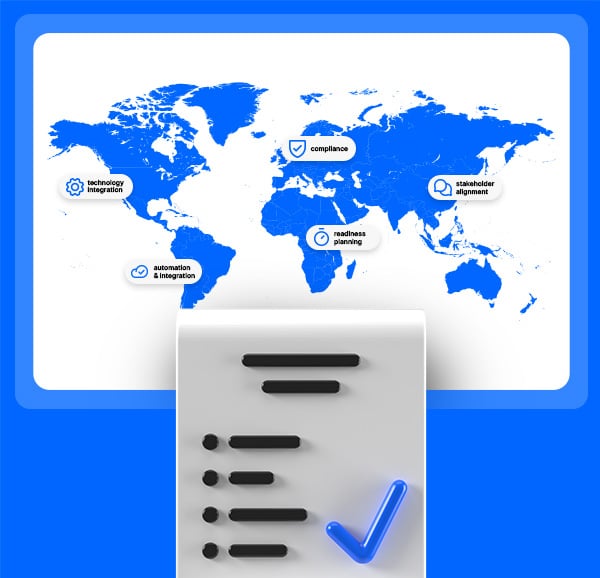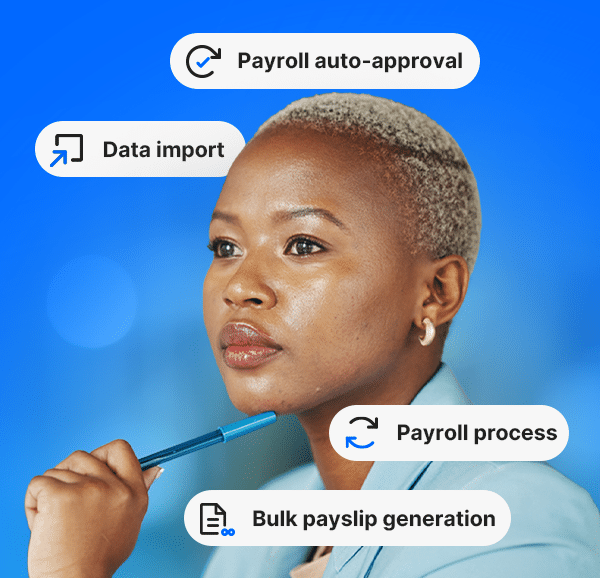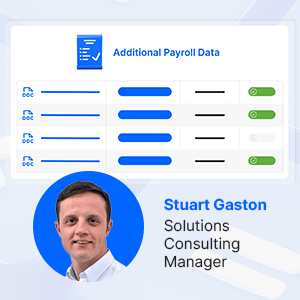by Eric de Keizer, COO CloudPay
Everyone is talking about AI for payroll at the moment, and it’s easy to understand why. The number of processes and functions that it’s transforming is enormous, whether it’s speeding up checks and validations, making payroll more accurate, or helping payroll teams get more done in their day. But it’s important to remember that AI isn’t the only thing driving payroll forward, both as a strategic function and as a part of employee experience.
As part of my job as CloudPay’s Chief Operating Officer, I get to see how all the ins and outs of payroll are working. This includes in-house teams, service partners, our payments groups, on-demand pay through CloudPay NOW, and our customer success group. So, while I can see that AI and automation will continue to lead the payroll conversation in 2024, there are several other trends emerging, too.
Employees emphasize the importance of their experiences
One of the things we believe in so wholeheartedly at CloudPay is the idea of the ‘modern pay experience’. The world of pay has an important part to play in supporting positive employee experiences, whether it’s through CloudPay NOW giving them unprecedented flexibility in how and when they’re paid, or wider financial wellbeing support and education. Employees are increasingly recognizing the value of these measures, and how they encourage happier working lives. Because of this, the ‘end customer’ of payroll, which used to be the HR department, is now gradually becoming the individual employee.
Everyone benefits from this. Employees who are happier tend to be more motivated and more productive. Employers benefit from that productivity, find that happier workers are more loyal, and therefore find talent retention and acquisition is much easier, even in competitive job markets. And the rising number of gig-economy workers are finding the viability of their jobs and careers is being transformed by the flexibility in their pay. CloudPay NOW is the only platform currently enabling on-demand pay, anywhere in the world within 20 seconds, and those who want flexibility inside and outside of work are gaining from that.
AI and automation work to eliminate the flaws in payroll
Everyone expects payroll to run perfectly, and rightly so. When payroll goes wrong, it means people don’t get paid and can’t cover their bills. Or it means that highly sensitive personal data is compromised. Because of this, payroll strives to get absolutely everything 100% right.
But the problem is that humans aren’t perfect, and they make mistakes, whether it’s because they’re tired from a heavy workload, worn down by repetitive processes, or just simply because they make a wrong decision somewhere along the line. And this is where AI is perhaps making the biggest difference in payroll.
We are gradually introducing AI into more processes to enable payroll accuracy and consistency to get closer to 100% than it’s ever been before. This means further automation of data entry, validations, and reconciliation – and thanks to Natural Language Processing, this will include areas previously unsuitable for automation such as unstructured documents. Additionally, predictive analytics based on historical payroll and employee data will enable more accurate and indelible payroll forecasting. All this saves payroll departments a lot of time, money – and stress!
AI is still in its relative infancy and so its capabilities and dependability are still being explored over time. But as it improves through 2024 and beyond, I expect AI adoption in payroll to continue at pace, so that payroll teams can advance in their quest for perfection.
Compliance and data security become a greater challenge
Compliance has always been a hot topic and a major challenge for all payroll teams. But in 2024, it’s likely to become even more so, as countries around the world introduce more and more regulations – something my colleague John Pearce highlighted recently. These range from the economic reforms in Argentina and the changes to the National Insurance rates in the United Kingdom, to the recognition of ‘transgender’ alongside ‘male’ and ‘female’ in India. All these changes will impact payroll in some way, whether in processing, record-keeping, or data collection, and payroll teams will have to adjust.
At a global level, the more countries that a business operates in, the greater the volume of regulations that a payroll team must ensure compliance with. It may well be that we see more businesses turning to third-party payroll providers for support this year, so that they can be sure they’re on the right side of all the laws that apply to them.
Whether you want to maximize the potential of AI, enhance your employees’ experiences, or ensure global regulatory compliance, CloudPay’s global payroll solution and support services can help you every step of the way.


